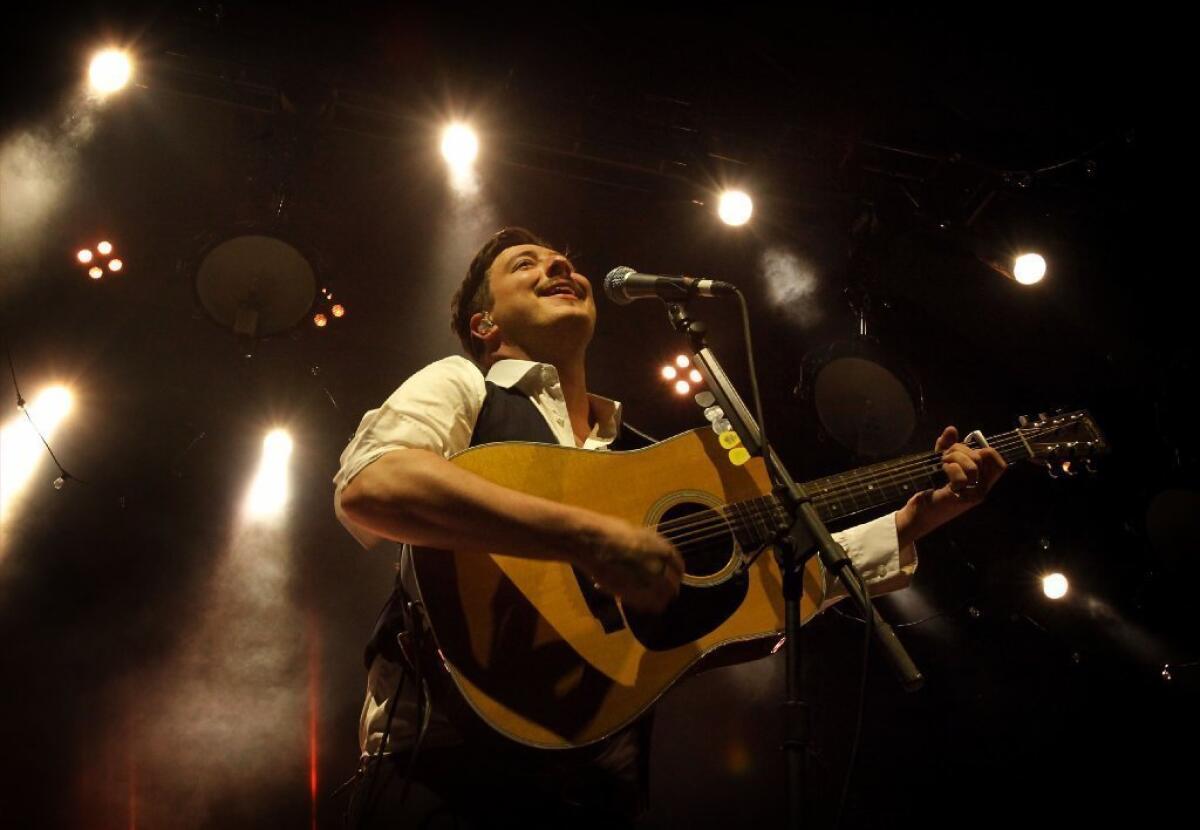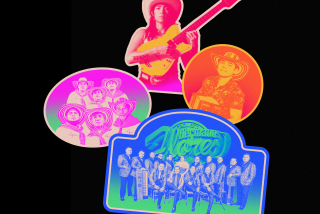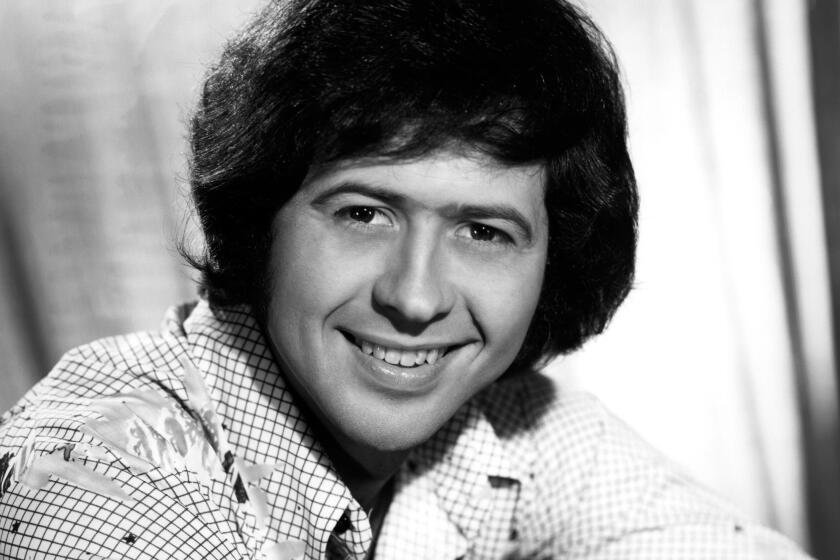Live: Mumford & Sons offer sing-along anthems at Hollywood Bowl

- Share via
Mumford & Sons’ Ben Lovett stood before the sold-out crowd at the Hollywood Bowl on Saturday night and delivered one of the band’s only understatements of the evening. “It’s a little bit different than the Hotel Cafe,” he said, referencing the tiny club not far away where the band he cofounded, Mumford & Sons, booked its first Los Angeles show in 2008.
On that night, they were one of three young acts on a “new British folk” bill. In the four years since, Mumford & Sons had a mega-hit with “The Cave,” were nominated for Grammys, performed onstage alongside many of their forefathers (Bruce Springsteen, Paul Simon, Ray Davies), risen to become a top-selling British import, and connected with earnestly devoted audience.
FOR THE RECORD:
Mumford & Sons: An earlier version of this article said that while onstage Marcus Mumford mentioned the group’s first gig at the Hotel Cafe. Keyboardist Ben Lovett said that.
Perhaps most curiously, given the electronic dance music world that surrounds them on the charts, is that the brand of British folk they debuted an election cycle ago has tapped into many modern hearts, resulting in them being perhaps the most banjo-centric British group to ever dent U.S. charts.
Mumford & Sons -- Marcus Mumford, Winston Marshall, Ben Lovett and Ted Dwayne -- performed as part of a triple bill on Saturday at the Bowl, too, along with Angeleno artists Dawes and producer/Earlimart founder Aaron Embry. But this time, the stakes were higher, and the payoff greater, and the connection much, much bigger.
On the first of two nights at the Bowl (they perform again Monday), Mumford & Sons, augmented by a brass section and a range of multi-instrumentalists, played beneath a backdrop image of galloping horses and over two solid hours proved how they’ve earned their success. This is music of emotional connection, and the trail into lyricist Mumford’s heart was wide.
Like that pack of horses, this is a band that loves to start out in a trot but end with gallop, and in between convey an emotional landscape as old as dirt. Whether on the opening song, “Babel,” which reached one of many great crescendos, or on the weeper “Dust Bowl Dance,” about a protagonist “kicked off my land at the age of 16,” once on the fly Mumford describes his heart racing through an anachronistic world that seldom mentions cars, text messages, TV shows, or any topic that doesn’t involve timeless emotion. Like the classic work of the Kinks, Mumford’s love is for analog England.
Ditto the sound of Mumford, which is more influenced by the British pre-rock ‘n’ roll skiffle tradition and the region’s centuries-old folk sounds than by any of the various beat-based musics that have occupied young minds over the last three decades.
The group hearkens back to a world where “hearkens” is standard usage, life-and-death decisions are made every day, and no emotion, however weakened, is off limits for a man. “Weep little lion man, you’re not as brave as you were at the start,” he sang on “Little Lion Man,” from the group’s 2010 breakout album, “Sigh No More,” unafraid to share his fear or admit fault.
This openness has resonated in 2012, as evidenced by the group’s fan base at the Bowl. A pack whose devotion is palpable, they not only sang along but screamed along to every bit of the band’s work -- and not just the lyrics to the group’s mega-hit “The Cave,” which they performed during the encore.
But Mumford’s not the most visionary lyricist. Though he and the band certainly deliver musical and lyrical passion, at its worst it’s in service of earnest songs that lack not only wit or bite but the kind of literary detail that turns a decent songwriter into a great one.
In “Babel,” the title track from the band’s recently released second album, walls “come crumbling down” as he stands before cliched “winds that will howl.” If a bridge arrives in a song, it’s a burned one. Too, Mumford’s music is nearly singularly focused on the generalities of love -- doubt, obsession, disappointment -- offering big-idea narratives that lack spark.
The music certainly didn’t, though -- especially on the two occasions when opener Dawes joined the group onstage. The first, during “Awake My Soul,” propelled one of Mumford & Sons’ best songs into a cosmic realm. With double the sound, the version found a big, beefy groove within the track and moved it urgently forward.
Dawes did this in their opening set, which despite its overt allegiance to Los Angeles canyon rock, crafted smart if overly standard country-tinged songs to a receptive audience. The band returned to join Mumford & Sons for the final performance of the night, a monstrous cover of the Beatles’ “With a Little Help from My Friends.” But rather than Ringo Starr’s lesser version, Mumford, Dawes, and L.A. session king Blake Mills offered the Joe Cocker arrangement, and the result was an epiphany.
These friends are legion, in turns out, and by their response on Saturday, are willing to offer more than just a little help.
ALSO:
Hotel Cafe offers a Brit-folk invasion
Review: ‘Babel’ by Mumford & Sons
Mumford & Sons strike a common chord
PHOTOS AND MORE:
PHOTOS: Iconic rock guitars and their owners
The Envelope: Awards Insider
PHOTOS: Unfortunately timed pop meltdowns
More to Read
The biggest entertainment stories
Get our big stories about Hollywood, film, television, music, arts, culture and more right in your inbox as soon as they publish.
You may occasionally receive promotional content from the Los Angeles Times.










